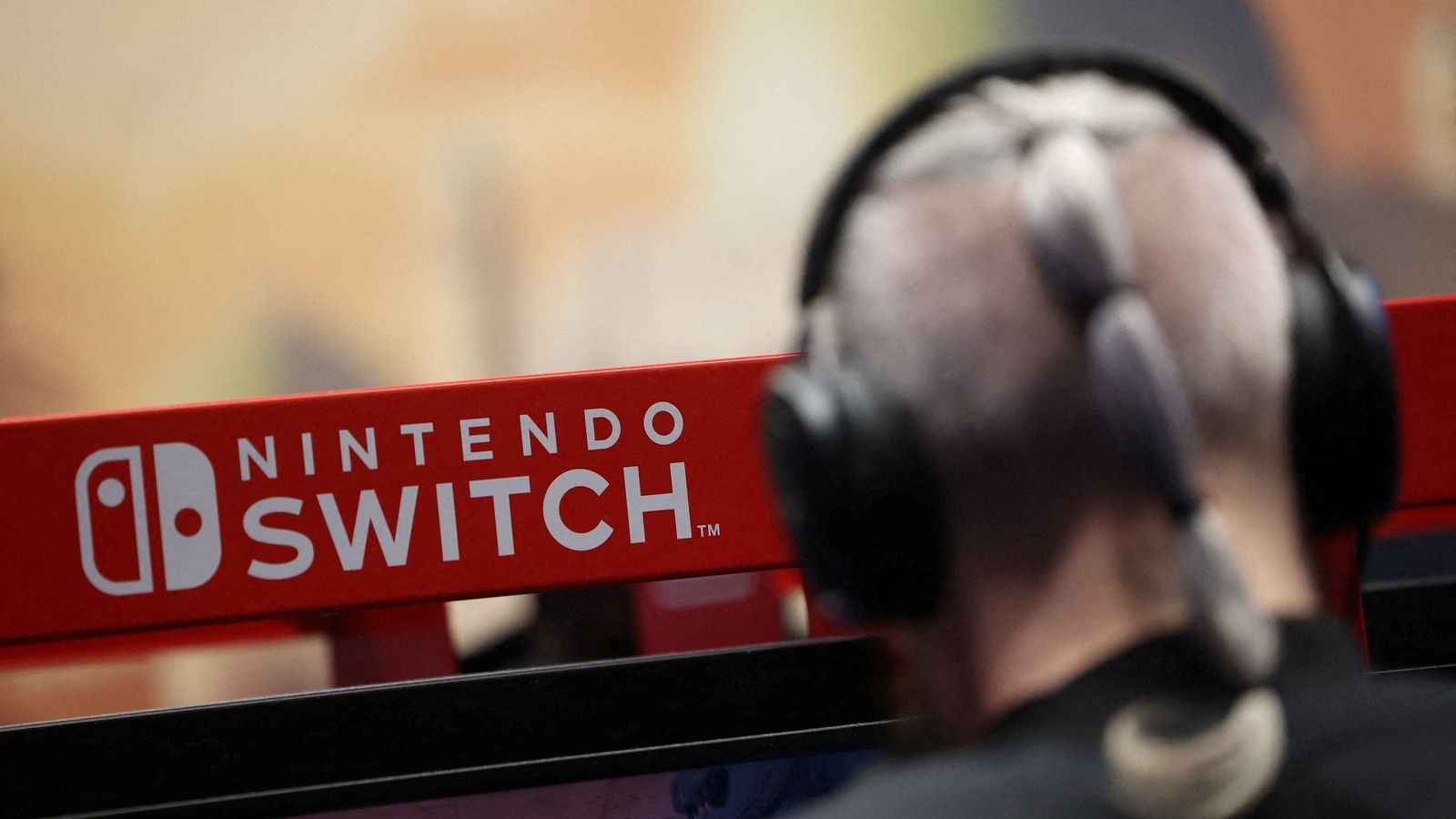“Access to abortion is on the ballot this November,” Mucarsel-Powell, a former South Florida congresswoman who lost her seat to a Republican in 2020, told the crowd that had assembled to watch her accept the endorsement of the local and state chapters of the Service Employees International Union. “And if we want to stop these extreme bans, we have to stop the extremists that are pushing them.”
Mucarsel-Powell and her fellow Florida Democrats haven’t won a U.S. Senate race or an electoral vote in this once-purple state since 2012. They believe they have found something that will bring voters to the polls and could help her and President Biden win the state: the November referendum that would enshrine abortion access in the state’s constitution, effectively overturning a near-total abortion ban that went into effect this year.
Polls show the referendum is extremely popular. But some Democrats and voting experts in Florida doubt the measure can help drive Democratic turnout in a presidential-election year. They cite Republicans’ vast advantage over Democrats in registered Florida voters, some Republicans’ willingness to support the abortion amendment alongside their party’s candidates and Mucarsel-Powell’s relative lack of statewide recognition.
“It’s going to be really difficult, I think, for this measure to be a magic bullet to help Democrats,” said Dan Smith, a political science professor at the University of Florida who has long researched the impact of ballot initiatives. “I don’t see a lot of Republicans breaking rank and supporting Democratic candidates up and down the ballot over this issue.”
And the groups leading the push for the referendum, who are counting on independent and Republican support to win the 60 percent of the vote it needs to pass, are keeping their distance from partisan politics.
“This work is entirely separate. It is a basic human rights campaign. It’s not a political campaign,” said Lauren Brenzel, campaign director for Yes on 4, the coalition pushing for the amendment.
Abortion rights advocates have had success at the polls in the two years since the fall of Roe v. Wade, the 1973 Supreme Court decision that legalized the procedure nationwide. Voters rejected antiabortion ballot measures in red states, including Kansas and Kentucky, and Democrats won midterm victories in campaigns that focused heavily on reproductive rights.
But this year’s election — the first presidential race in the post-Roe era — poses a new test for Democrats and abortion rights supporters.
Mucarsel-Powell, who served a single term in Congress before being unseated in 2020 in a tight race, has made abortion access core to her campaign, often describing the state’s six-week abortion ban as an example of how Scott and Republicans are undermining the freedom her family sought when they migrated from Ecuador to the United States. Her campaign has hosted roundtables with Floridians, released digital ads and posted on social media about the issue ahead of her August primary. Mucarsel-Powell leads her opponents in fundraising and endorsements.
Mucarsel-Powell, 53, said she agrees that abortion rights is not a partisan issue — and that’s why she wants to sell voters across the political spectrum on why, if they support the ballot referendum overturning the abortion ban, they should support her, too.
“The choice is going to be so clear that if they’re coming out to vote to protect access to abortion, they’re going to vote for the candidate that’s going to make sure that we protect access to abortion at the federal level — not for the man that wants to pass a national abortion ban and he has his name on the bill,” Mucarsel-Powell said in an interview, referring to Scott’s past support for a nationwide prohibition.
“They need 60 percent,” she added, referring to the ballot measure’s supporters. “I think they’re going to receive 60 percent of the vote. I need 50 plus one.”
Scott, who is running for another term, as well as to replace Mitch McConnell (Ky.) as the Senate Republican leader, has sought to soften his stance on abortion as Republicans across the country have grappled with the potency of the issue in driving Democratic victories in the years following the overturning of Roe. Scott, 71, opposes the ballot initiative in Florida and has said he would have signed the state’s six-week ban into law if he were still governor. He has also expressed support for in vitro fertilization and said he believes states should determine abortion access.
Even if the abortion referendum passes, “it doesn’t really matter for the Senate race if nobody knows who Debbie Mucarsel-Powell is,” said Chris Hartline, a senior adviser to Scott. “And that’s the problem that she has right now.”
Some Democratic operatives argue that the ballot measure alone will not have a transformative effect in the state, especially as economic anxiety remains high across the country and voters continue to tell pollsters that the economy is the top issue on their minds. Democrats here also say that turning around the party’s fortunes in the state will require time, money and organization. And, so far, longtime party operatives say they have not seen anything that indicates a serious effort to win a state where Republicans now outnumber Democrats by more than 900,000 in voter registration.
Florida has become “mecca for MAGA … it’s really difficult to find and look for any kind of a silver lining,” said Fernand Amandi, who helped shape former president Barack Obama’s Hispanic outreach in Florida and nationally in 2008 and 2012.
The Biden campaign and the Democratic National Committee have repeatedly argued that Donald Trump’s home state is in play and said that they plan to spend money there this cycle. But when Puck News recently asked Biden campaign chair Jen O’Malley Dillon whether Florida is a battleground state, she gave a one-word answer: “No.”
Dan Kanninen, the Biden-Harris battleground states director, later walked back O’Malley Dillon’s comment, saying that the campaign believes Florida is “in play for President Biden and Democrats up and down the ballot.”
Support for the abortion rights measure is well ahead in recent polling. Scott has a more narrow lead. The incumbent leads with 45 percent support among likely voters to 37 percent for Mucarsel-Powell, according to a recent CBS News-YouGov poll. Another 18 percent of voters were undecided or indicated they would vote for someone else. The same poll found 60 percent of likely voters in Florida saying they would support Amendment 4, the abortion ballot measure.
Another poll, from Fox News, found 69 percent of registered voters backing the amendment, including 50 percent of Republicans, 68 percent of independents and 92 percent of Democrats. The estimate of support for the amendment in the Fox News poll was higher than other polls this spring but indicates significant Republican and independent support for the measure, which is necessary in the state where 65 percent of registered voters are one or the other.
Florida voters have a history of passing amendments embraced by liberals while electing Republicans at the top of the ticket. In 2018, for example, Floridians approved an amendment to restore voting rights for most felons and simultaneously elected Ron DeSantis as their governor and Scott to the U.S. Senate.
Groups working to ensure the abortion amendment passes say they are already seeing that willingness among Republicans to back the amendment while continuing to express support for their party’s candidates. In conversations with voters, pro-amendment organizers are steering clear of politicizing the amendment or tying it to any party.
“You’re going to see people across the political spectrum voting on this particular issue,” said Ashley Walker, general consultant to Florida Women’s Freedom Coalition, a bipartisan group pushing for the amendment’s passage.
Republican strategists acknowledge that some Republicans and independents will vote for Trump, Scott and both the abortion amendment and another that will legalize recreational marijuana. But some say they have a hard time seeing how the abortion ballot initiative will be sold as nonpartisan given Democrats’ focus on the issue.
“This is the heart and soul of their party. They have nothing else they’re running on in 2024,” said Ryan Tyson, a longtime GOP operative in Florida. “And I don’t think that there’s a snowball’s chance in hell that they can make this issue bipartisan when it’s the only issue that their candidates — both in Florida and around the country — put their money behind.”
Mucarsel-Powell celebrates her heritage as an Ecuadorian-born Latina and touts being the first South American-born immigrant ever elected to Congress. But she emphasizes that she’s running on issues that resonate with all Floridians: high insurance rates, a housing affordability crisis and the future of Social Security and Medicare.
On the campaign trail, she is focused on introducing herself to voters who may not have heard of her. During a recent day of stops at senior day-care centers in a heavily Republican part of Miami, she spent time listening to older people talk about the issues that are front of mind for them. Most focused on the cost of housing, health care and other living expenses — and, when asked about the election, said they were enthusiastic about voting for Trump in November.
After meeting Mucarsel-Powell, some said they were open to voting for her. Several, when asked, said they didn’t know about the abortion ballot initiative, but some said they were open to voting for it, too.
Bernarda Concepcion Fernández, 89, was one of those voters, saying she would vote for Trump, liked Mucarsel-Powell and might vote yes on the abortion amendment. Fernández, who identifies as a Republican, said she didn’t know why the government was wading in on the issue of abortion rights in 2024.
“It’s obviously not something impacting my life today and I personally would never have — I believe life is sacred — but there shouldn’t be a strict ban,” Fernández said as she held a flier for Mucarsel-Powell that she planned to review. On Trump, she said, “We need a strong man who’s going to improve our economy and handle the situation at the border. It’s terrible what’s happening with so many people coming and thinking the border is open.”
But even as Fernández, a Cuban immigrant, talked to her friends at the senior center about her reluctance to support Democrats — “so many of them are really communists and that’s what ruined my home,” she said — she was open to voting for Mucarsel-Powell.
“Me alegra ver una mujer echándole ganas,” she said in Spanish. “It makes me happy to see a woman giving it her all.”
Scott Clement contributed to this report























